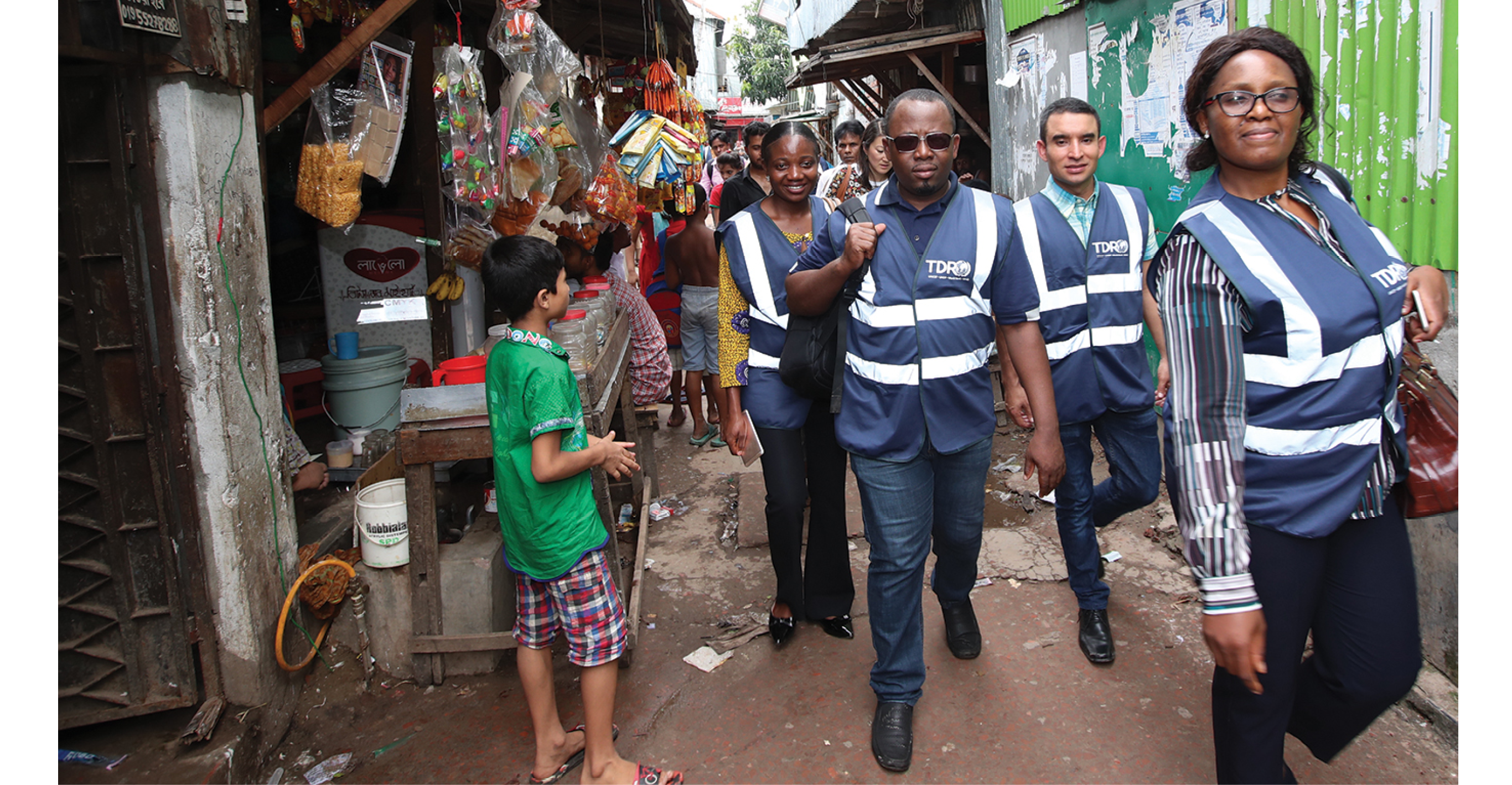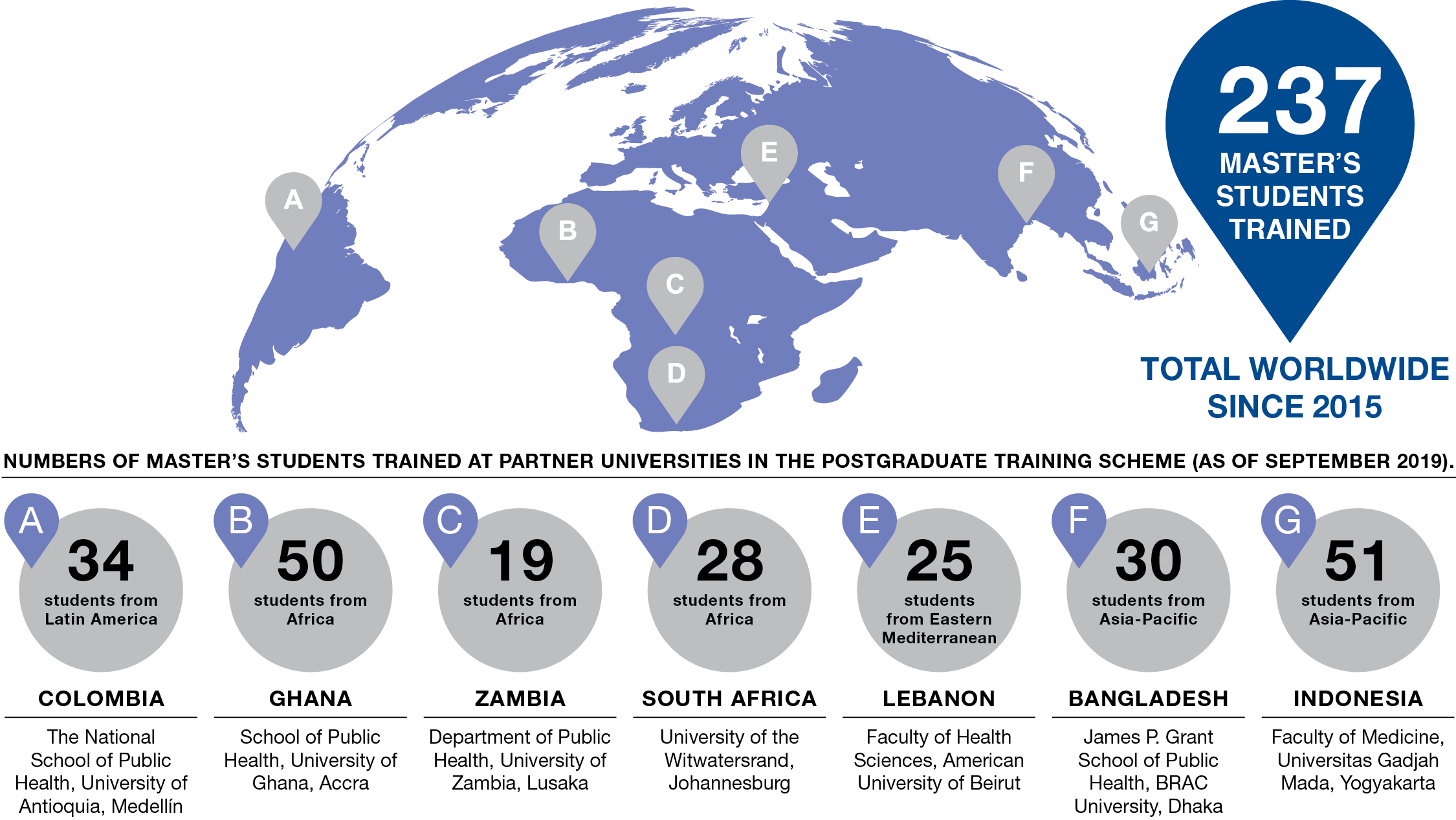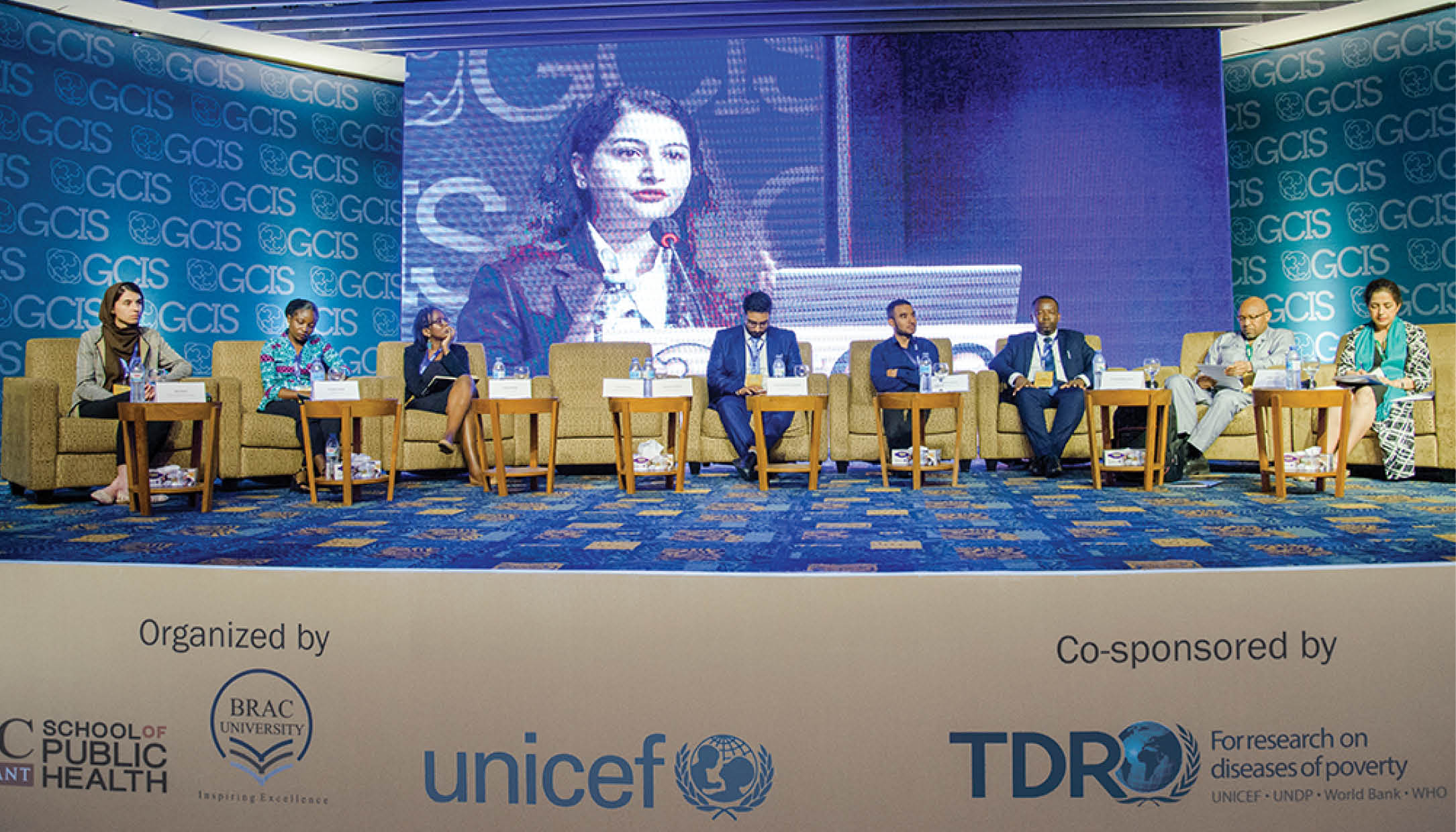



MOOC on
Implementation
Research
More than 5000 researchers
from more than 200 countries participated in TDR’s Massive Open Online Course on Implementation Research conducted
in English, French and Spanish.

Ethics in
Implementation
Research
New training course on ethics in implementation research
jointly developed by TDR and WHO’s Health Ethics
& Governance Unit.

Postgraduate
Training Scheme
In collaboration with seven universities
in low- and middle-income countries, TDR has awarded
a cumulative total of 237 master’s fellowships since 2015
focused on implementation research.





Research Capacity Strengthening activities are at the heart
of the TDR Strategy 2018–2023, which aims to contribute
to the achievement of the Sustainable Development Goals (SDGs) and universal health coverage (UHC). Within the context of the TDR vision, the overall goal is to strengthen the capacity of individuals, institutions and societies to produce research evidence useful for reducing the burden of infectious diseases of poverty in low- and middle-income countries (LMICs). Collaborations with partner universities and training institutions in these countries are critical to jointly achieving this goal.
Strengthening
research capacity


Postgraduate training scheme:
Building the capacity of the next generation of researchers
and global health leaders
The postgraduate training scheme provides a full academic scholarship in collaboration with seven universities in
low- and middle-income countries. Students obtain master’s degrees focused on implementation research on malaria,
TB and neglected tropical diseases.
Results
Since the inception of the scheme in 2015, the seven universities have awarded a cumulative total of 237 master’s scholarships and eight PhD fellowships. Among the 237 master’s students, 122 (51%) are men and 115 (49%) are women. Of the eight PhD students, one is a woman.
International reach of Postgraduate Training Scheme



TDR fellows participating in postgraduate training scheme, in Dkaha, Bangladesh




First Global Conference on Implementation
Science and Scale-up
The role of implementation research in accelerating universal health coverage
was showcased at the first Global Conference on Implementation Science
and Scale-Up in Dhaka, Bangladesh, 29 June – 1 July 2019. The conference was co-hosted by the James P. Grant School of Public Health at BRAC University, Centre of Excellence for Science of Implementation and Scale-up (CoE-SISU), and UNICEF Bangladesh, and co-sponsored by TDR. BRAC is one of the seven universities TDR partners with on the postgraduate training scheme.
Seven graduates from the universities implementing the scheme - in Bangladesh, Colombia, Ghana, Indonesia, Lebanon, South Africa and Zambia – were selected to present their implementation research projects on neglected tropical diseases and TB at the conference. They are:
Alfred Kwesi Manyeh
University of Witwatersrand,
South Africa
“ Using intervention mapping to design
and implement quality improvement strategies towards elimination of
lymphatic filariasis in Northern Ghana.”
Andrés Felipe Úsuga Rodríguez
University of Antioquia, Colombia
“ Barriers that limit implementation of thermal fogging intervention in vector control for dengue in Medellin, Colombia.”
Faustina Gyimah
University of Ghana
“ Fear of the unknown: exploring psychosocial factors that influence implementation of DOTS strategy in Accra Metropolis, Ghana.”
Sabina Timilsina
Gadjah Mada University, Indonesia
“ The acceptability of screening of diabetes mellitus among tuberculosis patients at DOTS centres in selected districts of Nepal.”
Patricia Maritim
University of Zambia
“ Evaluating the appropriateness of
a mass drug administration programme
in Livingstone District, Zambia.”
Saha Naseri
American University of Beirut, Lebanon
“ Post-evaluation of a tuberculosis awareness campaign in Afghanistan using RE-AIM framework.”
Ateeb Ahmed Parray
BRAC University, Bangladesh
“ Hospital infection control in selected
facilities managing drug-resistant tuberculosis in Bangladesh.”






